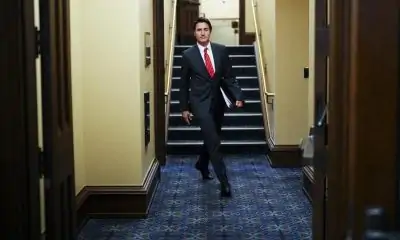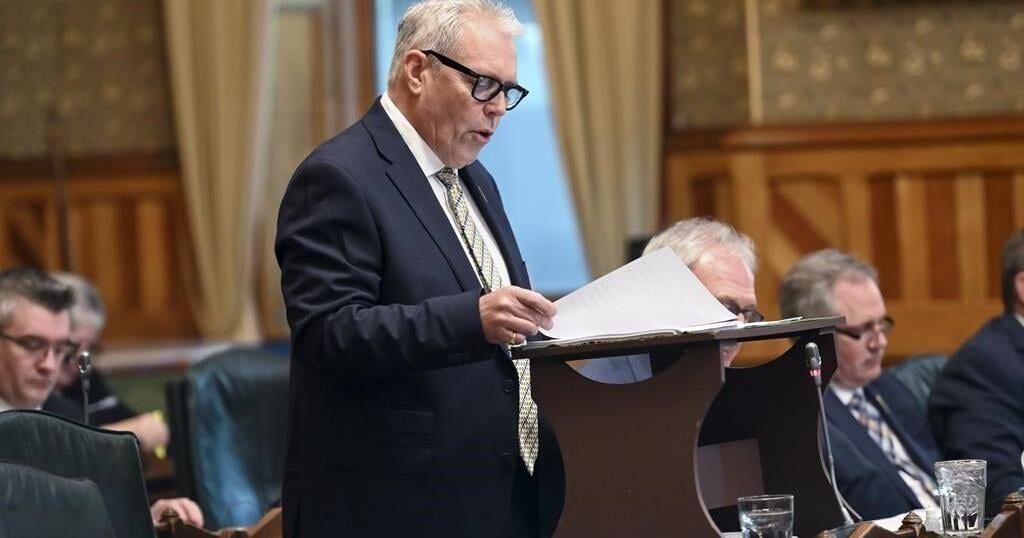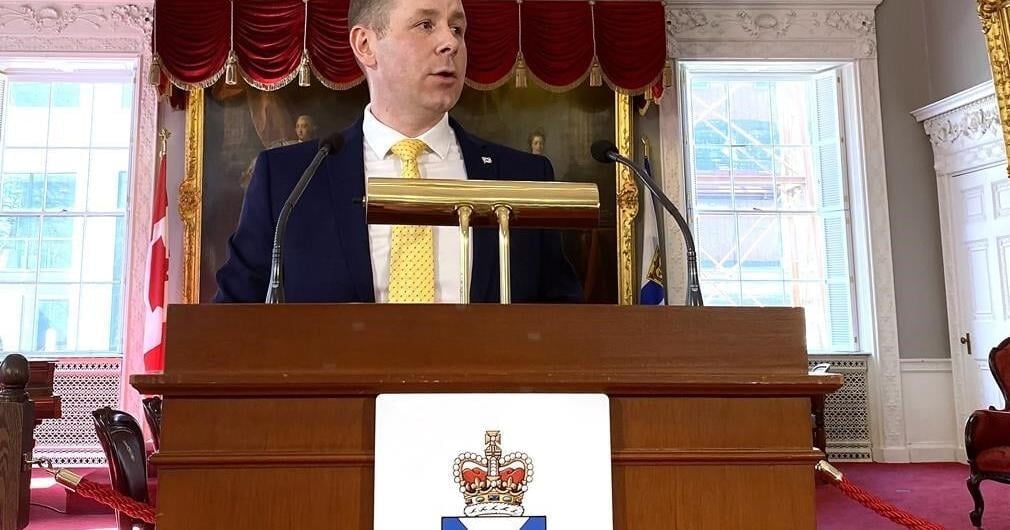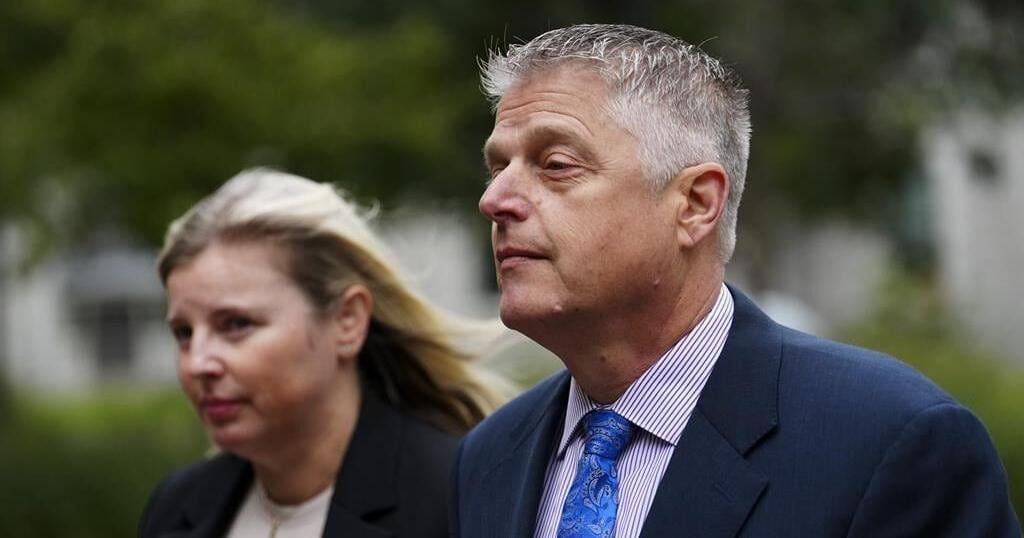OTTAWA – Former vice-admiral Haydn Edmundson has been found not guilty of sexual assault and committing an indecent act, concluding a trial that began in February.
Edmundson was head of the military’s personnel in 2021 when he was accused of assaulting another member of the navy during a 1991 deployment.
The complainant, Stephanie Viau, testified during the trial that she was 19 years old and in the navy’s lowest rank at the time of the alleged assault, while Edmundson was an older officer.
Edmundson pleaded not guilty and testified that he never had sexual contact with Viau.
In court on Monday, a small group of his supporters gasped when the verdict was read, and Edmundson shook his lawyer’s hand.
Outside court, lawyer Brian Greenspan said his client was gratified by the “clear, decisive vindication of his steadfast position that he was not guilty of these false accusations.”
Justice Matthew Webber read his entire decision to the court Monday, concluding that the Crown did not meet the standard of proving its case beyond a reasonable doubt.
He cited concerns with the complainant’s memory of what happened more than 30 years ago, and a lack of evidence to corroborate her account.
“There are just too many problems, and I’m not in the business of … declaring what happened. That’s not my job, you know, my job is to just decide whether or not guilt has been proven to the requisite standard, and it hasn’t,” Webber said.
During the trial, Viau testified that one of her responsibilities on board the ship was to wake officers for night watch and other overnight duties, and that she woke Edmundson regularly during that 1991 deployment.
The court has heard conflicting evidence about the wake-up calls.
Viau estimated that she woke Edmundson every second or third night, and she told the court that his behaviour became progressively worse during the deployment.
She testified that he started sleeping naked and that one night she found him completely exposed on top of the sheets.
Viau said she “went berserk,” yelling at him and turning on the lights to wake the other officer sleeping in the top bunk.
That incident was the basis for the indecent act charge.
Webber said he did not believe that Viau could have caused such a disruption on board a navy ship at night without notice from others.
“I conclude that (Viau’s) overall evidence on the allegation that Mr. Edmundson did progressively expose himself to her as being far too compromised to approach proof of those allegations that she has made,” he said in his decision.
Viau alleged that the sexual assault happened a couple of days after her yelling at Edmundson.
She testified at trial that he stopped her in the corridor and called her into his sleeping quarters to talk. Viau said Edmundson kept her from leaving the room, and he sexually assaulted her.
When Edmundson took the stand in his own defence he denied having physical or sexual contact with Viau.
During his testimony, Edmundson also said Viau did not wake him regularly during that deployment because his role as the ship’s navigator kept him on mostly day shifts.
Defence lawyer Brian Greenspan took aim at the Crown’s corroborating witness during cross-examination. The woman, whose name is protected by a court-ordered publication ban, was a friend of Viau’s on the ship.
She testified that she remembered the evening of the assault because she and Viau had been getting ready for a night out during a port visit, and she misplaced her reading glasses. She said Viau offered to go fetch them from another part of the ship but never came back, and that she went looking for her friend.
On cross-examination, the woman explained that she had told all of this to a CBC reporter in early 2021.
Greenspan produced a transcript of that interview that he said suggests the reporter told her key details of Viau’s story before asking her any questions.
Greenspan argued the reporter provided information to the witness and she wouldn’t have been able to corroborate the story otherwise.
In his decision, Webber said the woman’s evidence “cannot be relied upon in any respect to corroborate that evidence of the complainant, because it’s it’s clearly a tainted recollection, doesn’t represent a real memory.”
Edmundson was one of several senior military leaders accused of sexual misconduct in early 2021.
He stepped down from his position as head of military personnel after the accusation against him was made public in 2021. The charges were laid months later, in December 2021.
Edmundson testified that in February 2022, he was directed by the chief of the defence staff to retire from the Armed Forces.
The crisis led to an external review by former Supreme Court justice Louise Arbour in May 2022, whose report called for sweeping changes to reform the toxic culture of the Armed Forces.
The military’s new defence chief, Gen. Jennie Carignan, was promoted to the newly created role of chief of professional conduct and culture in an effort to enact the reforms in the Arbour report.
Outside court, Edmundson declined to comment on whether he was considering legal action against the government or the military.
This report by The Canadian Press was first published Sept. 16, 2024.
































